She left the Danish Embassy in Argentina to travel against time back to her loved one in Thailand
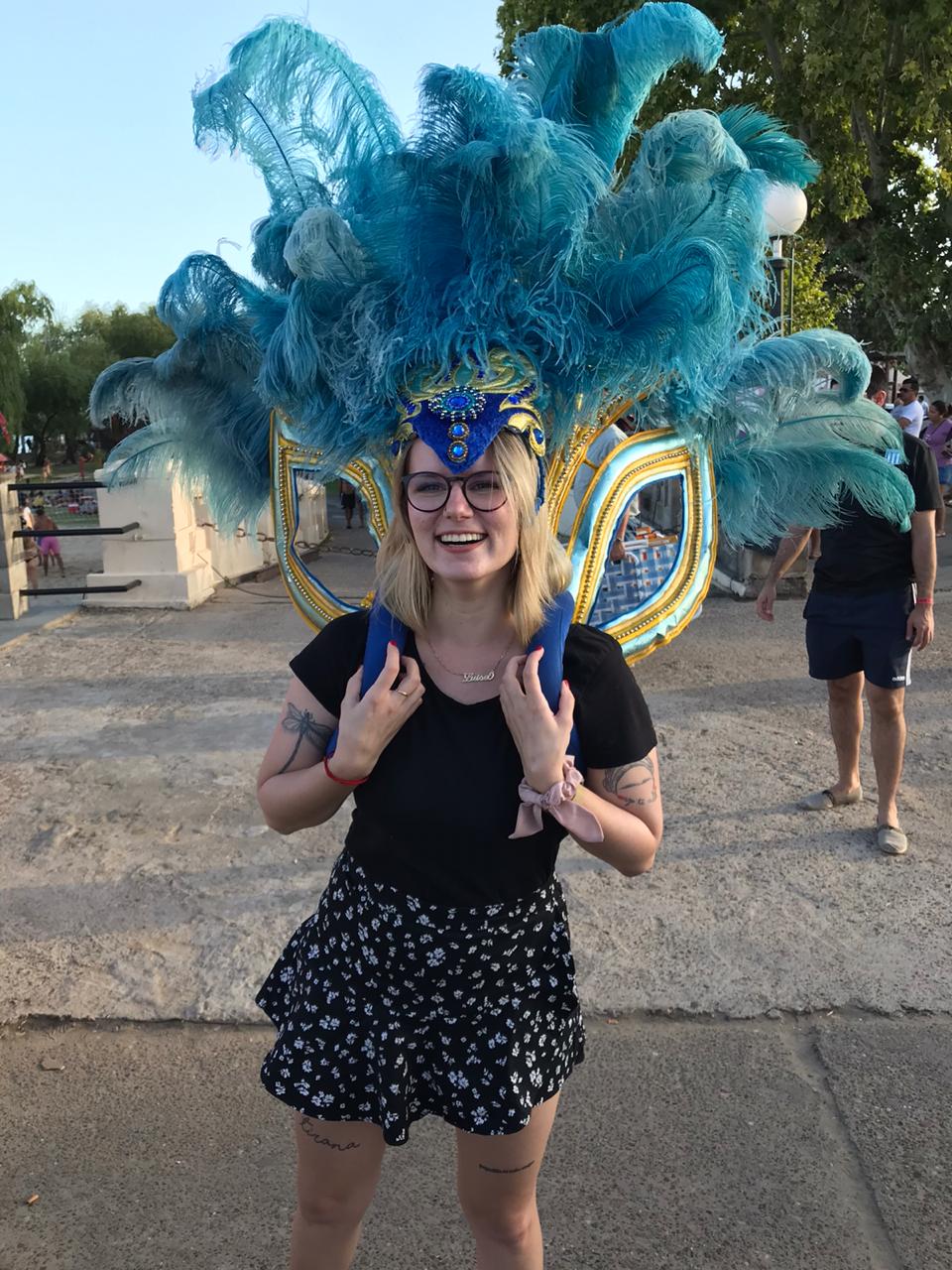
(Photo: Luisa Gonzalez Boa)
Two weeks ago, I was in Buenos Aires, waking up to the annoying sound of my roommate’s alarm.
I was going to work and everything seemed normal. At the Danish embassy we were still discussing if it was necessary to cancel a meeting the embassy had organized for Danish companies and laughing together, sharing mate (an Argentinian drink).
Today, I am sitting in my previous apartment in Bangkok, looking out of the window and wondering what will happen to the world – and to my life (and everyone else’s lives) – in the following weeks and months.
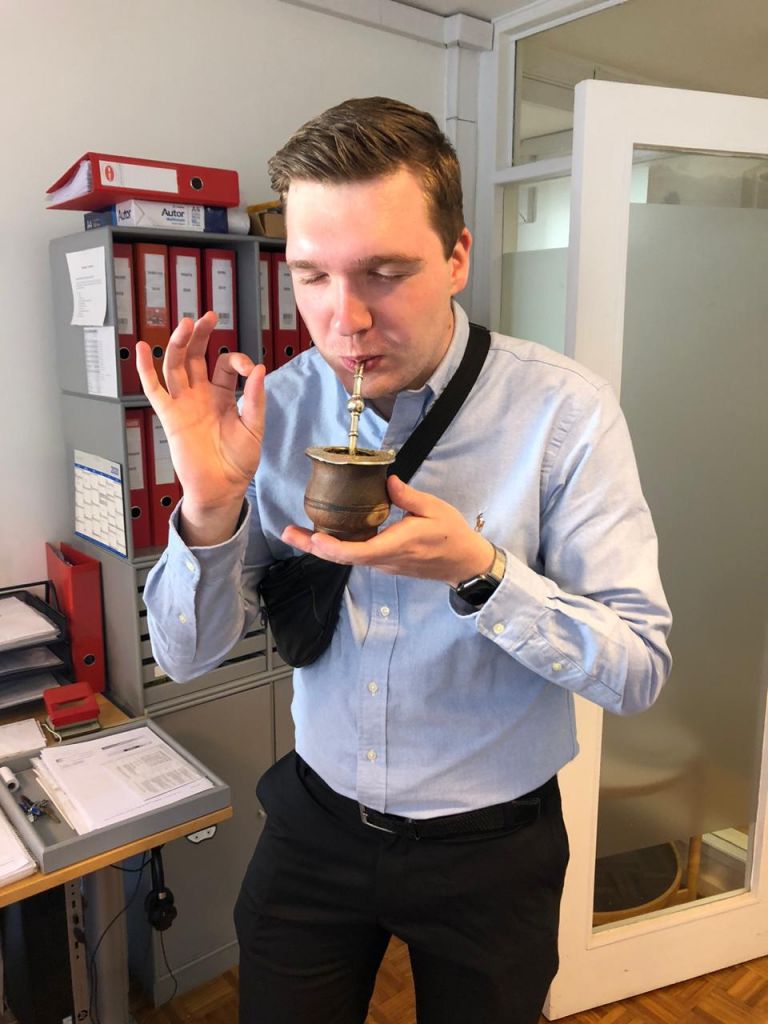
Simon, a friend at The Danish Embassy, is trying Mate. ( Photo by Luisa Gonzalez Boa)
When coronavirus hit China, I was worried about my friends there. Our university in China was not being very supportive (they still aren’t in all honesty), but my friends seemed to be doing fine. Using masks, staying home, ordering take-aways. Luckily Beijing was not one of the most affected areas in China.
Back then, the virus seemed so far away, so alien.
When the number of cases in Denmark jumped from 30 to 700 in a matter of days, the Danish Ministry of Foreign Affairs (MFA) started issuing strict rules and guidelines we needed to follow even if the country we were stationed in wasn’t hit yet. They made a “one size fits all” approach, totally understandable under the current circumstances. So we started working hard, and cancelling meetings.
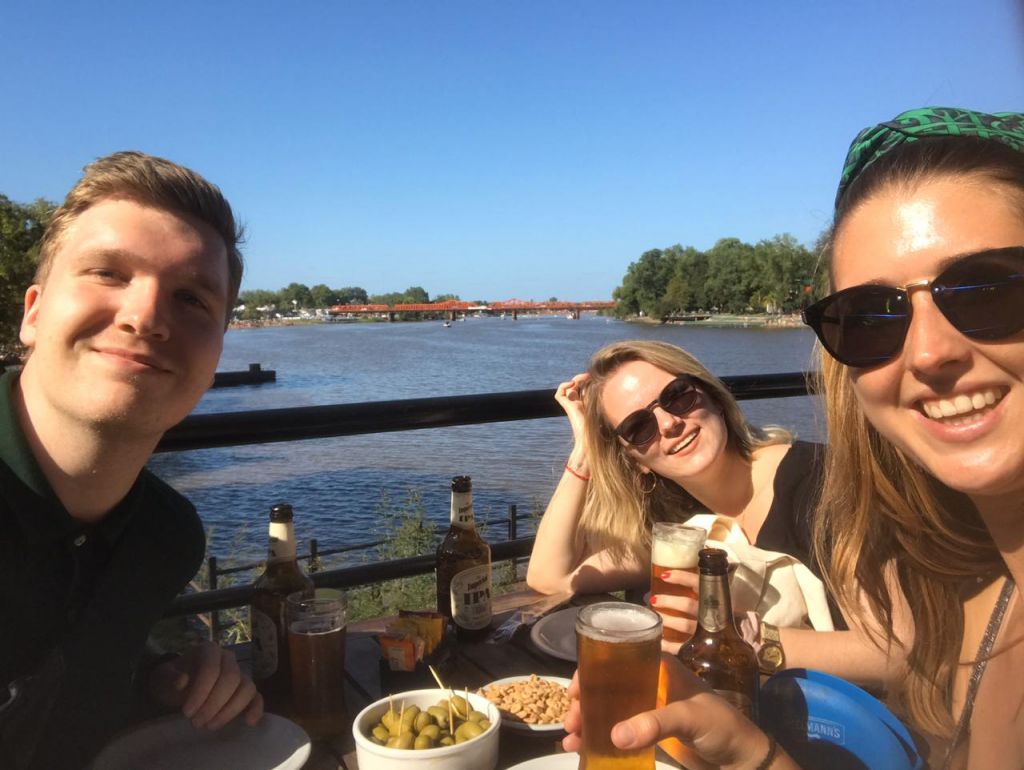
A weekend trip together with friends from the embassy. (Photo by Luisa Gonzalz Boa)
Suddenly, having lunch together was forbidden and we needed to relocate to our home offices. My last day at the office was the day the MFA sent all Danes abroad the message: Please come home.
As you can imagine, we worked hours non-stop answering calls from worried Danes “trapped” in Argentina, and updating our website with the latest information we could find. Argentina had banned flights from Europe, and it seemed it was only going to get tougher.
Some might say that Argentina started taking very early measures to avoid an outbreak, but I admire them for that.
Nonetheless, on my side, it was getting a bit nerve-wracking. Steve, my boyfriend, had a flight ticket to Buenos Aires for the 26th and we didn’t know whether it would be affected, or whether he should even come. At that time, Argentina was not accepting travelers from the People’s Republic of China, and no one in the foreign ministry in Argentina could tell me whether Hong Kong is considered to be China or not.
Thus, we started pondering other ideas, should I return to Bangkok, go back home to my family in Spain, to my grandma’s place in Denmark or just stay in Buenos Aires?
These days were not easy. I broke two phones in two days – one I accidentally dropped and then my old back-up phone just decided to abandon me during these hard times by suddenly shutting down – and the thought of staying quarantined in Argentina alone was consuming me.
Going to Spain wasn’t an option, and neither was Denmark, as staying with my grandma would have put her at risk. So on Saturday morning, I packed everything in a matter of 1 hour and texted Steve: buy me the ticket. I rushed to the nearest supermarket to get the cheapest phone possible, as traveling during these times without one is almost a suicidal mission.
And thank goodness I bought that 2017 Samsung because even though it could barely stand one app, that night, a minute before boarding the plane, I got denied entry, and if that moment wasn’t stressful enough, I can’t imagine what I would have done without a phone to call my friends in Buenos Aires to pick me up.
This has been by far the most stressful trip of my life – and for years to come. As countries are beginning to lock down, it was a decision made in a matter of minutes, and (almost) everything that could go wrong, went wrong.
I went from being denied boarding due to a failed credit card verification (that I wasn’t told about at the check-in counter. Had they told me at that point, Steve would have had time to rush to Bangkok’s airport and verify his card. But Qatar Airways will be receiving our complaint soon), to a delayed plane, that made me miss my second connection, a 5-hour wait in Doha for the next plane, and when I arrived in Bangkok, I had to get the yellow fever vaccine, which had to be paid for in Thai currency but all currency exchange places were closed.
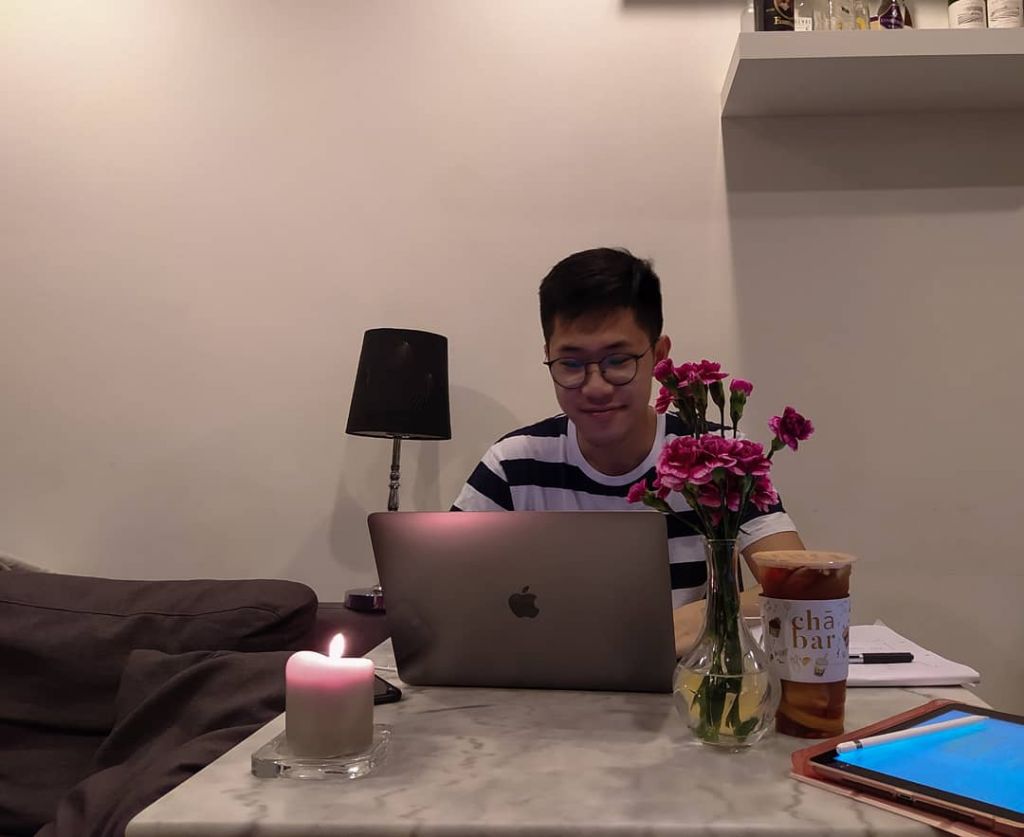
Luisa’s boyfriend Steven in his improvised home office in Bangkok. (Photo by Luisa Gonzalez Boa)
In addition, considering that borders were closing with extremely short notice, it was a trip full of anxiety, traveling across the world in a race against the clock. I managed to get into Thailand barely a few days before their new tough rules on foreigners were introduced – which consist of every foreigner entering the country testing negative for COVID-19 and having an insurance that covers $100,000. It would have been impossible for me to get in.
Now I have spent 5 days in Bangkok. Anxiety has come back and after 5 nights, I keep dreaming I am being denied entry or that I am being held at the border of a foreign country, alone and powerless. I keep waking up in a sweat and having mental breakdowns.
I am trying my hardest to avoid social media because it is all related to the virus, but I cannot stay numb to the situation, so I keep opening Twitter and the live count of cases website, seeing the numbers go up every time I refresh. I read stories about people not being able to say goodbye to their loved ones and it gives me chills to even think that this is happening.
And worst of all is the uncertainty of not knowing what will happen, when it will end, how many will be affected, and when normal life will resume. Will we be able to get on that scheduled plane back to Buenos Aires in 3 weeks? Or should we reschedule it to… when?

Long supermarked line in Bangkok. (Photo by Luisa Gonzalez Boa)
Still, I am focused on the positive aspects of the situation. After all, I am safe, and my loved ones are too. I am with Steve, in our old cozy home. Thailand has now begun a slow-motion lockdown: four days ago, it was massage places, bars and sport events. Yesterday, it was malls and shops (excl. supermarkets). Next, will probably be orders to stay home – the current end date is set at 12th April.
However, we went out yesterday for books, snacks, a month of coffee supplies, face masks, and some flowers.
And, as we celebrate our 9-month anniversary today by writing a complaint to the airline, spending some reading time together, ordering sushi and scheduling virtual coffees with our friends around the world, I can only smile thinking of how lucky I am that I made it here.
And as they say in Chinese: 加油!(Stay Strong!)
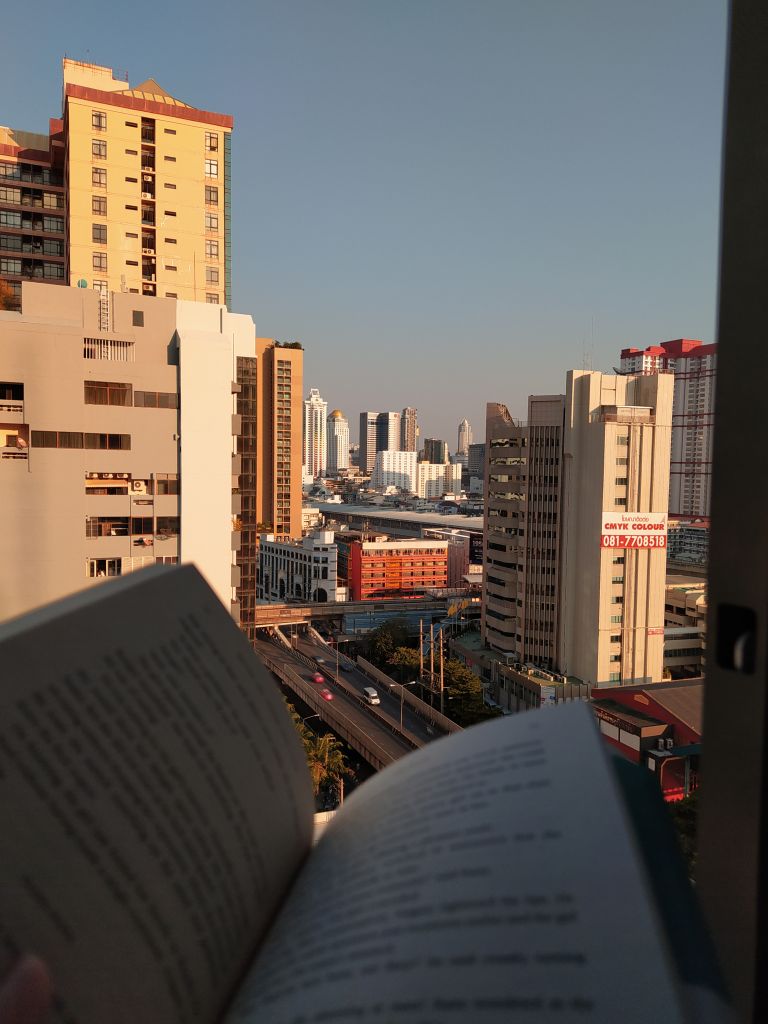
Back in Thailand, reading in the balcony during sunset. (Photo Luisa Gonzalez Boa)



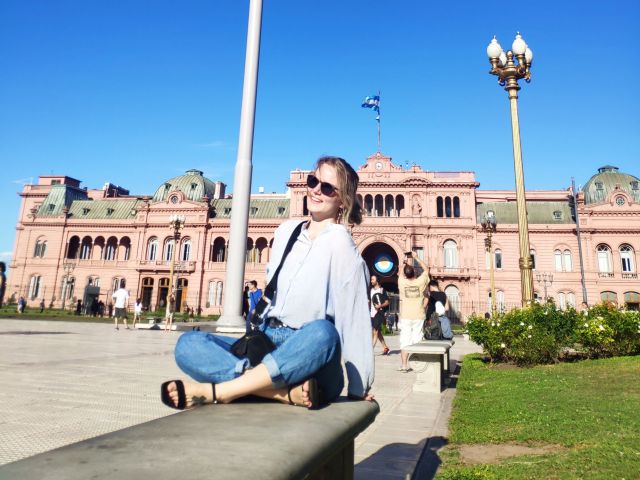
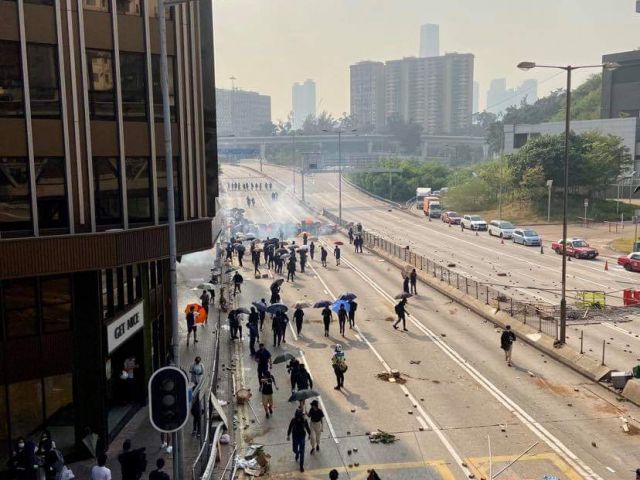





























































































































Comments